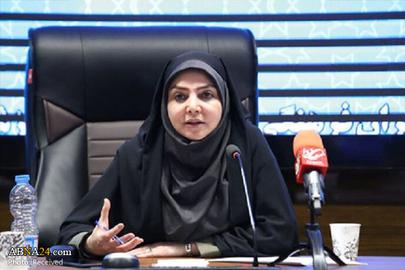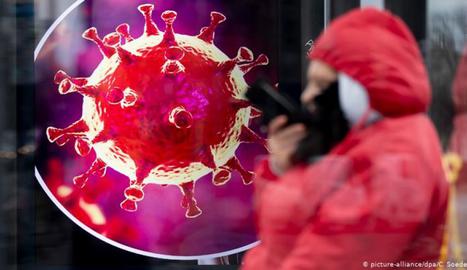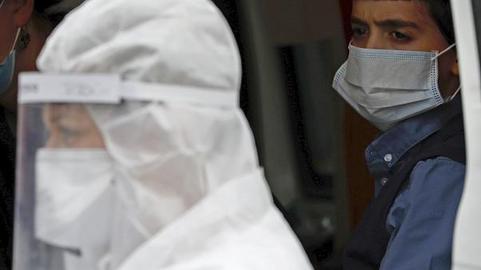In Iran, the first day of autumn began with 178 new coronavirus fatalities, bringing the official Covid-19 death toll for the last seven months to 24,656. Health officials predict that a third wave of the epidemic is on the way. Schools have reopened but families have now been told that attending classes in person is not mandatory. For more than a month, health officials have been promising that the distribution of the flu vaccine was to get underway as autumn began, but these promises are yet to be fulfilled. Overall, pandemic-stricken Iran is not in good shape.
Health officials claim that Covid-19 cases have been rising because coronavirus mutations have boosted its virulence, and also because people have been ignoring health guidelines. On September 22, First Deputy Health Minister Iraj Harirchi claimed that in the previous coronavirus waves the country witnessed more transmissions in society at large and in public places, and less inside households. This, he said, had now changed and he urged families to take precautions to prevent infecting one other.
What these claims ignore is that shortly before the reopening of schools, a number of health officials and medical experts had warned that reopening schools and the economy would mean the virus would be taken into homes more readily, particularly because children show fewer symptoms of coronavirus and, as a result, unknowingly pass on the virus to family members. This situation will lay the groundwork for an increase in fatalities among the elderly and those with underlying diseases and conditions.
Two weeks have passed since schools reopened. As predicted, there are more and more reports of students and teachers contracting the virus. According to Kourosh Maveddat, director-general of Khuzestan’s Education Bureau, “there have been cases of infection among students in the province. Figures and information about them must be announced by Ahvaz University of Medical Sciences.”
If a student is infected with coronavirus, the school the child attends must close for two weeks, said Deputy Health Minister Alireza Raeesi. “Other students must be protected and classes must be held remotely. If they do not show symptoms within two weeks they can return to classrooms by the start of the third week.”
Raeesi, however, did deny some reports about coronavirus infections among students. “In Tehran and other big cities the schools have become less crowded,” he said. “When schools reopened and attending classes in person was not a matter of choice, around 15 percent of students went to school and now, in Tehran, this figure has fallen to less than 10 percent.”
It is not only students, teachers and school staff who have been exposed to coronavirus infection because of the government’s policies. According to information received by IranWire, in the last month of summer a number of provincial governments in areas where there was a red state of alert did not allow their employees to work from home if they could.
One government employee in the city of Isfahan told IranWire that the provincial government is no longer allowing anybody to work remotely. “President Rouhani has delegated decisions about working remotely or about leaves of absence to provincial governments so that they can make decisions by taking into account the prevailing conditions in their provinces. But, unfortunately, Isfahan government office workers, and bank employees and employees working for other institutions under the control of the government, must be present at their workplaces even though the situation is critical.”
This source said that every family in Isfahan has at least one member who has contracted coronavirus, or who has already had it. “I am a government employee myself,” he said. “I called the governor’s office and they told me they cannot shut down the city because work and business must go on and this cannot be done remotely. But we know that coronavirus is doing its own work and employees are getting infected. One employee gets infected, takes a short leave of absence and when he returns, the next employee goes through the same thing. This is now normal! Government employees in Isfahan have got used to it, but they also do not wear masks and do not care about the most basic health guidelines.”
Even some officials at Isfahan’s provincial government confirm this undesirable situation. Dr. Abbas Ali Javadi, an infectious diseases specialist and a special assistant to the provincial government, believes that early on after the coronavirus outbreak there was a good rapport between various agencies in Isfahan. But, he said, “with the passage of time cooperation among them has weakened. Of course, this is not confined to our province and our country. When the epidemic started everywhere in the world compliance with protocols and inter-agency cooperation was taken more seriously. But gradually they are treating the situation as normal, the same way that people themselves get used to the increase in mortalities and, unfortunately, pay less attention to prevention.”
According to the latest report by the health ministry, on September 22 Iran broke its record of new coronavirus cases in one day since the start of the Covid-19 pandemic. In her daily briefing for September 22, health ministry spokeswoman Dr. Sima Sadat Lari announced the official coronavirus statistics for the last 24 hours:
Dr. Lari also reported that out of the 31 Iranian provinces currently 24 provinces are in a red state of alert and five provinces are in an orange state.
This is part of IranWire's coronavirus chronology. Read the full chronology
visit the accountability section
In this section of Iran Wire, you can contact the officials and launch your campaign for various problems



























comments